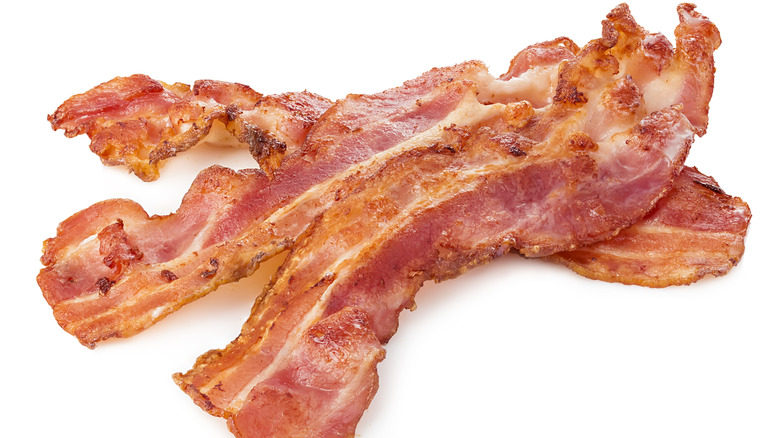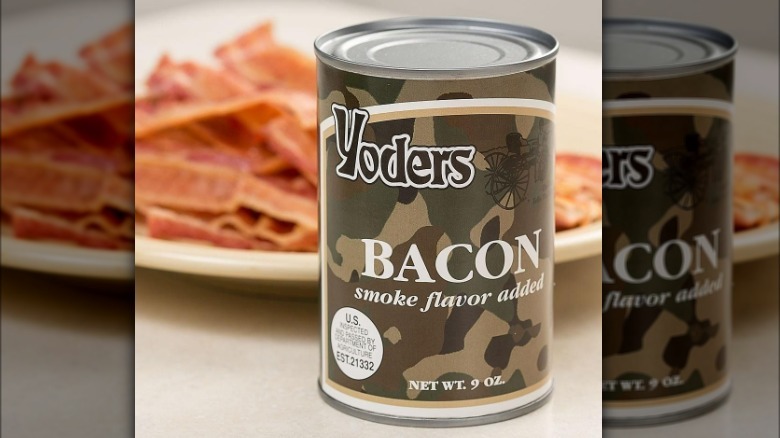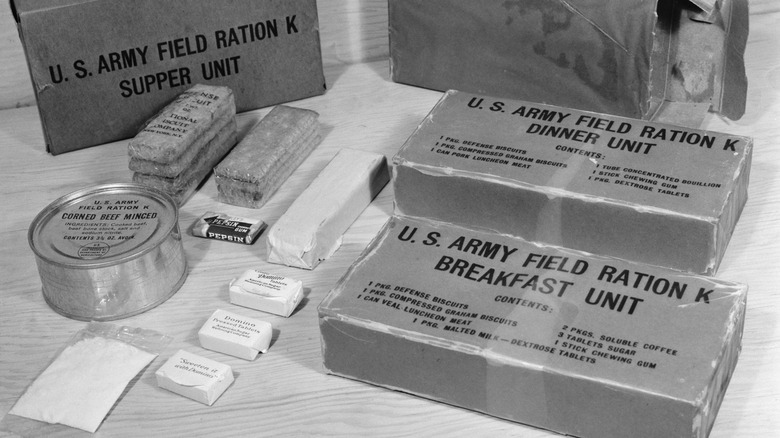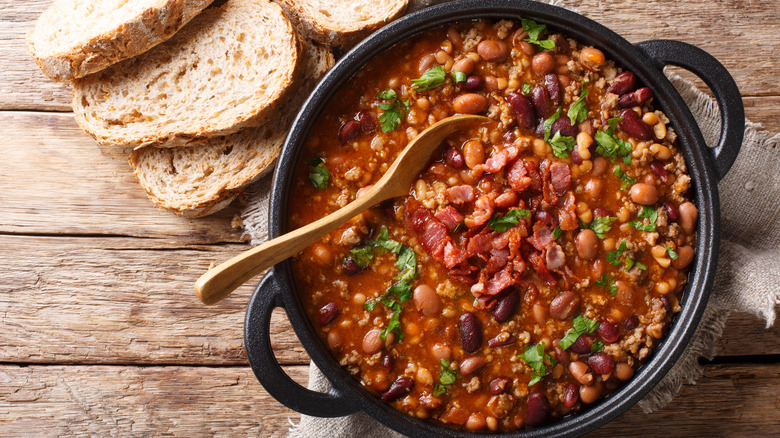Why You Should Keep Canned Bacon In Your Pantry
Everything is better with bacon, right? From hamburgers to grilled cheese, as a side to waffles, or even broken up into pieces on top of a salad: bacon fits almost everywhere. There are dishes where bacon is definitely the star, such as BLTs and bacon-wrapped asparagus. But one of the biggest downsides of making bacon, whether on the stove top, in the oven, or over a campfire, is the cleanup. If cooked the traditional way on top of the stove, odds are, fat will splatter all over the range. With all cooking methods, the liquified fat needs to either be poured into a container for disposal or left to cool and solidify before disposal. And if you are a busy person, all of this greasy cleanup is something you'd rather not deal with. That's where canned bacon can come in handy.
Precooked and ready to eat, canned bacon saves time and prevents mess in the kitchen or while cooking in the great outdoors. That's just one of the great reasons to make sure a can of bacon is in your pantry.
Ingredients and shelf life
There are several companies that sell canned bacon, including Yoders, which produces a variety of canned meats. One 9-ounce can of bacon from Yoders contains between 2 ¾ pounds and 3 ¼ pounds of raw bacon that has been cured and cooked before being drained and placed in the can. To prepare it to be stored in the can, the bacon slices are wrapped in waxed paper and rolled up. The label on a can of Yoder's bacon lists pork, water, salt, sugar, smoke flavorings, sodium phosphates, sodium erythorbate, and sodium nitrate as ingredients.
Containing preservatives, canned bacon generally has a shelf life of 10 or more years, but should be refrigerated after opening if not eaten right away. That's quite a bit more time compared to fresh bacon, which should be eaten within 7 days if stored in the refrigerator or around 4 months if kept in the freezer.
A food for soldiers and explorers
Canned bacon has long been a food of sustenance for soldiers, explorers, and survivalists who need a high-calorie food with a long shelf life. Antarctic explorer Ernest Shackleton took with him 1,470 pounds of canned bacon when he and his team traveled to the frozen land from 1907 to 1909, along with plenty of sardines, hams, and whisky (per Slate). During the Second World War, American soldiers were provided with canned bacon as part of ration kits that also contained biscuits, coffee, sugar, salt, and tobacco.
Survivalists (aka "preppers") who seek to be prepared for worst case scenarios — wherein the world is thrown into turmoil and supply chains are disrupted — often include canned bacon in their stockpiles of food. Various companies (like Yoders) that offer canned food also produce 9-ounce cans of bacon for whomever wishes to purchase it — and like all canned food, it has already been cooked and has a long shelf life. Canned bacon is a great addition to a food storage program, camping, hunting, or hiking.
How to use canned bacon
There is no need to cook canned bacon thanks to companies cooking it prior to canning it. It's even safe to eat without heating it up. Yoders suggests using its canned bacon as an ingredient in macaroni and cheese or as a topping for au gratin potatoes. The possibilities are only as limited as your imagination.
Canned bacon can be used similarly to fresh bacon, just without all of the work. Consider adding it to other canned foods, like baked beans for a summer barbecue. Or remove the slices of bacon and wrap them around shrimp for some surf and turf, enjoy it as a side to eggs, or add them to a sandwich.
With a long shelf life, having a can of bacon in your kitchen or RV cupboard can be a great option for a delicious bacon-focused meal without all of the hassle, mess, and cleanup.



